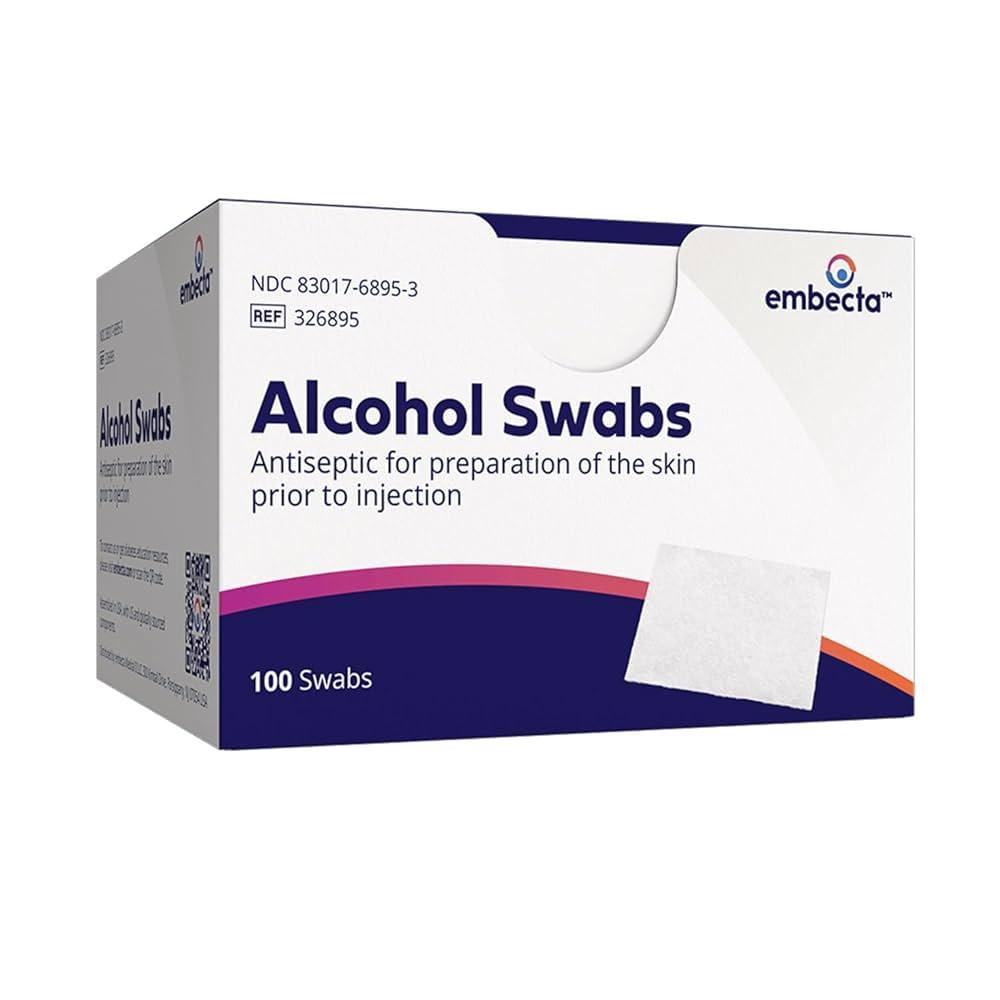Understanding Alcohol Swabs: Uses and Benefits

Alcohol swabs are ubiquitous items in both medical and everyday settings, designed primarily for cleaning and disinfecting skin before injections or minor medical procedures. These small, pre-packaged pads are soaked in isopropyl alcohol, typically at a concentration of 70%, which is optimal for killing bacteria and viruses. Understanding their uses, benefits, and proper application can significantly enhance hygiene practices and promote safety.
What Are Alcohol Swabs?
Alcohol swabs are sterile pads soaked in alcohol solutions, commonly isopropyl or ethanol. They serve as a convenient means of disinfecting surfaces or skin, ensuring that harmful pathogens are minimized. According to the Centers for Disease Control and Prevention (CDC), using alcohol-based products is an effective way to reduce the risk of infection. When applied correctly, alcohol swabs can effectively eliminate a wide range of germs, making them an essential tool in both healthcare and personal care routines.
Key Uses of Alcohol Swabs
1. Preparing Skin for Injections: One of the primary uses of alcohol swabs is to prepare the skin before injections, such as vaccines or blood tests. Cleaning the area with an alcohol swab helps reduce Alcohol Swabs the risk of infection at the injection site.
2. Cleaning Medical Equipment: Alcohol swabs are also effective in sanitizing medical devices like thermometers, glucose meters, and even some electronic devices. This practice is vital in preventing cross-contamination between patients.
3. First Aid: In minor first aid scenarios, alcohol swabs can be used to clean minor cuts or scrapes. However, they should be used sparingly, as excessive application can irritate the skin.
4. Household Cleaning: Beyond medical uses, alcohol swabs can be beneficial in household cleaning tasks. They can effectively clean small electronic devices, glasses, and surfaces that require disinfecting but might be sensitive to other cleaning solutions.
Benefits of Using Alcohol Swabs
- Convenience: Alcohol swabs are portable and easy to use, making them ideal for on-the-go disinfection. They come in individual packets, ensuring they remain sterile until use.
- Effectiveness: The 70% alcohol concentration in most swabs is proven to be most effective against bacteria and viruses, including influenza and coronaviruses. This concentration allows for better penetration and efficacy against pathogens.
- Reduced Risk of Infection: Regular use of alcohol swabs before injections or procedures can significantly reduce the risk of infections, making them an indispensable tool in both clinical and home settings.
- Cost-Effective: Alcohol swabs are generally inexpensive and widely available, making them an accessible option for maintaining hygiene.
Proper Usage of Alcohol Swabs
To maximize the effectiveness of alcohol swabs, follow these guidelines:
- Clean the Area Thoroughly: Ensure that the skin is free of dirt or debris before applying the swab. Wipe the area in a circular motion from the center outward.
- Allow to Dry: Give the alcohol a moment to dry before proceeding with an injection or procedure. This ensures that the alcohol has time to kill the germs.
- Dispose Properly: After use, dispose of alcohol swabs in a manner consistent with local regulations to prevent environmental impact or accidental exposure.
Conclusion
In summary, alcohol swabs are versatile, effective, and essential tools in maintaining hygiene in medical and everyday environments. Their easy application and proven effectiveness make them a staple in every first aid kit and medical bag. When used correctly, these small pads can play a significant role in reducing infections and promoting overall health. For more detailed information, you can refer to this resource on . Ultimately, understanding how to properly utilize alcohol swabs can empower individuals to take charge of their hygiene practices effectively.
- Art
- Causes
- Crafts
- Dance
- Drinks
- Film
- Fitness
- Food
- Jogos
- Gardening
- Health
- Início
- Literature
- Music
- Networking
- Outro
- Party
- Religion
- Shopping
- Sports
- Theater
- Wellness


